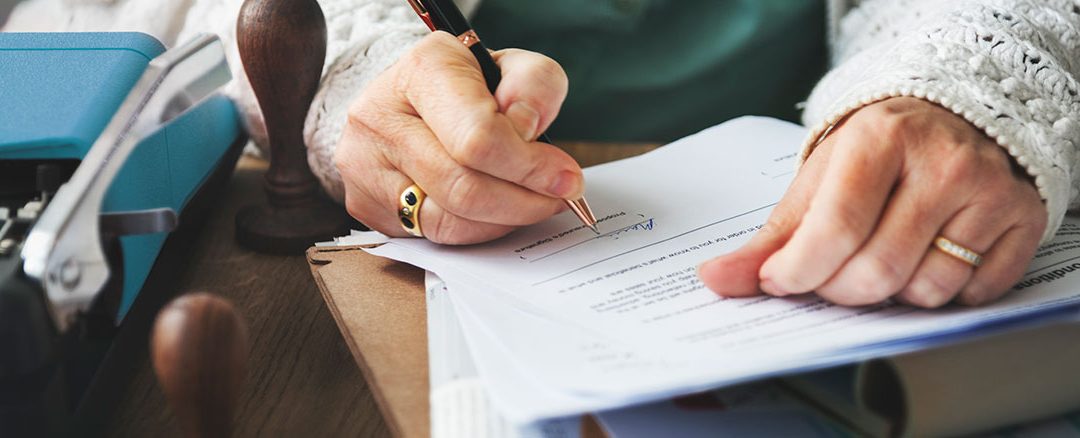The Ontario government continues to update legislation in response to the COVID-19 pandemic. In addition to allowing for remote witnessing of Wills and Powers of Attorney (see our earlier blog, here), the government has also amended legislation so that Wills and Powers of Attorney can now be signed in counterparts. This means that the person signing the document as grantor or testator can sign a different physical copy of the document than those signing as witnesses, and the document will be just as valid as if all parties signed the same document. Signing documents in counterparts is often used in business deals where the parties are not together in the same location when finalizing a deal.
Allowing for these important documents to be signed in counterparts has avoided the added steps which were required when the Will was witnessed remotely, which involved couriering the Will or Power of Attorney from the testator or grantor and each witness, so that everyone signed the same document.
With the combination of allowing for remote witnessing of documents, and now signing these documents in counterparts, the law now ensures that Ontarians can make their Wills and Powers of Attorney without any physical contact, and with a minimum of effort. With these extra steps taken, it is now easier than ever to make your Will and Powers of Attorney.
At Goldstein Rosen & Rassos we are always staying up to date on the latest changes which affect Wills and Powers of Attorney. We are also constantly monitoring the COVID-19 situation and adapting our practices to serve you better. We now have a process which will allow our clients to sign Wills and Powers of Attorney entirely via audio-video communication.
Please contact us today to begin the process of making or updating your Wills and Powers of Attorney.
We have included below the text of the regulation made by the Ontario government for more information.
Wills
2. (1) A requirement under the Succession Law Reform Act that a testator or witnesses be present or in each other’s presence for the making or acknowledgment of a signature on a will or for the subscribing of a will may be satisfied by means of audio-visual communication technology provided that at least one person who is providing services as a witness is a licensee within the meaning of the Law Society Act at the time of the making, acknowledgment or subscribing.
(2) If a will is executed with the assistance of audio-visual communication technology as authorized by subsection (1), the signatures or subscriptions required by the Succession Law Reform Act may be made by signing or subscribing complete, identical copies of the will in counterpart, which shall together constitute the will.
(3) For the purposes of subsection (2), copies of a will are identical even if there are minor, non-substantive differences in format or layout between the copies.
Powers of attorney
3. (1) A requirement under the Substitute Decisions Act, 1992 that witnesses be present for the execution of a power of attorney may be satisfied by means of audio-visual communication technology provided that at least one person who is providing services as a witness is a licensee within the meaning of the Law Society Act at the time of the execution.
(2) If a power of attorney is executed with the assistance of audio-visual communication technology as authorized by subsection (1), the signatures required by the Substitute Decisions Act, 1992 may be made by signing complete, identical copies of the power of attorney in counterpart, which shall together constitute the power of attorney.
(3) For the purposes of subsection (2), copies of a power of attorney are identical even if there are minor, non-substantive differences in format or layout between the copies.
by Rylan McCloskey, Student-at-Law | Wills and Estate Law

